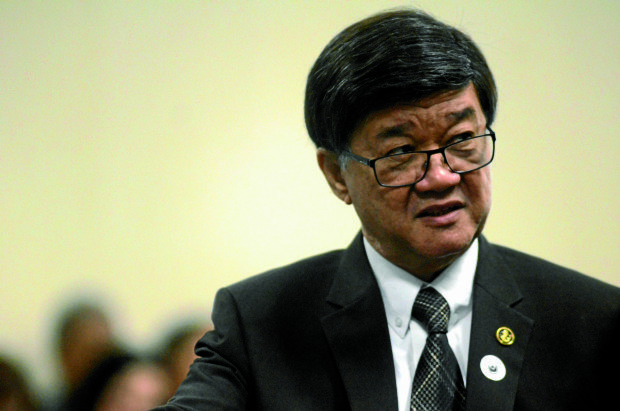Aguirre: Courts to decide legality of BuCor, Tadeco deal
Justice Secretary Vitaliano Aguirre II on Monday said it is up to the courts to determine the legality of the joint venture agreement (JVA) between the Bureau of Corrections (BuCor) and the Tagum Agricultural Development Company (Tadeco) which covers the more than 5,000 hectares of land within the Davao Penal Colony (Dapecol).
“It will be the courts who will decide on that, if the issue will be contested until the very end,” was all Aguirre said Tuesday.
Speaker Pantaleon Alvarez earlier urged the Department of Justice (DOJ) to issue a legal opinion on the matter. Alvarez said the deal should be invalidated due to alleged irregularities.
Earlier, the DOJ’s fact-finding panel already issued their findings saying the JVA is illegal, a finding of which Aguirre said he supports.
READ: Aguirre: BuCor, Tadeco deal is null and void
Article continues after this advertisementAmong the findings of the DOJ panel headed by Chief State Counsel Ricardo Paras III is that since the land under the joint venture agreement is an inalienable land of public domain, it cannot be the subject to such an agreement as it would violate the Public Land Act and the Constitution.
Article continues after this advertisementIt explained that inalienable land needs first a presidential act to be declared as alienable and be considered for such agreement.
The panel also said that the Tadeco land lease far exceeded the limit because it covered 5,308.36 hectares of Dapecol when it was extended for another 25 years on May 21, 2003.
The Constitution limits to 1,000 hectare area of public agricultural land that can be leased to a private company or corporation.
The DOJ panel said that the JVA also failed to meet the legal requirements of a valid JVA since it has no categorical indication of a “true and realistic” sharing of the profits and losses and the BuCor’s participation in the operation and management of the banana plantation is “substantially minimal.”
The panel also said the JVA which will run until 2029 is more than 10 years the maximum 50 years allowed and as such also violates the Public Land Act.
The agreement was first signed in 1969 and extended in 1979 for 25 years, and again for another 25 years in 2003. JE/rga
